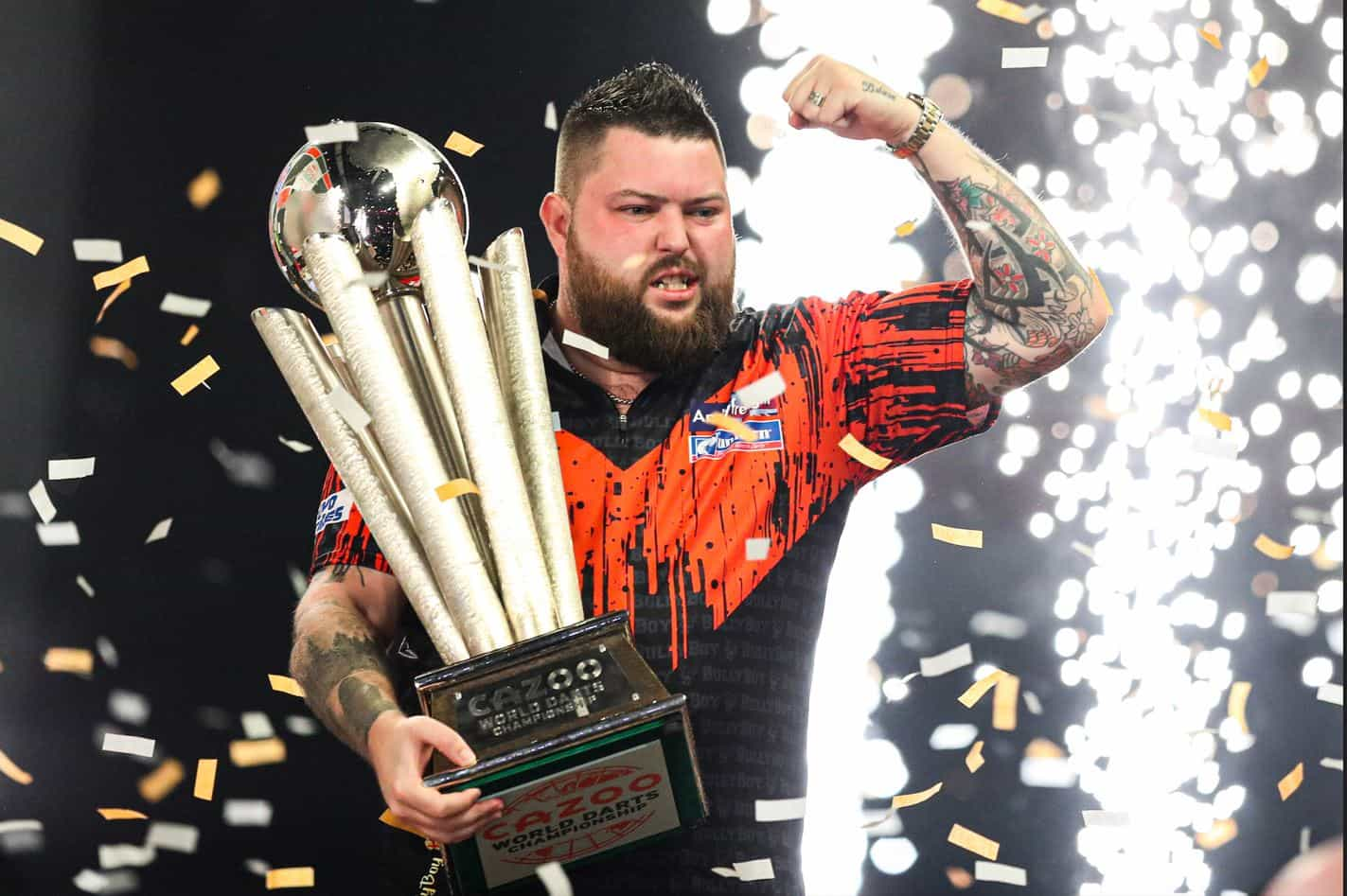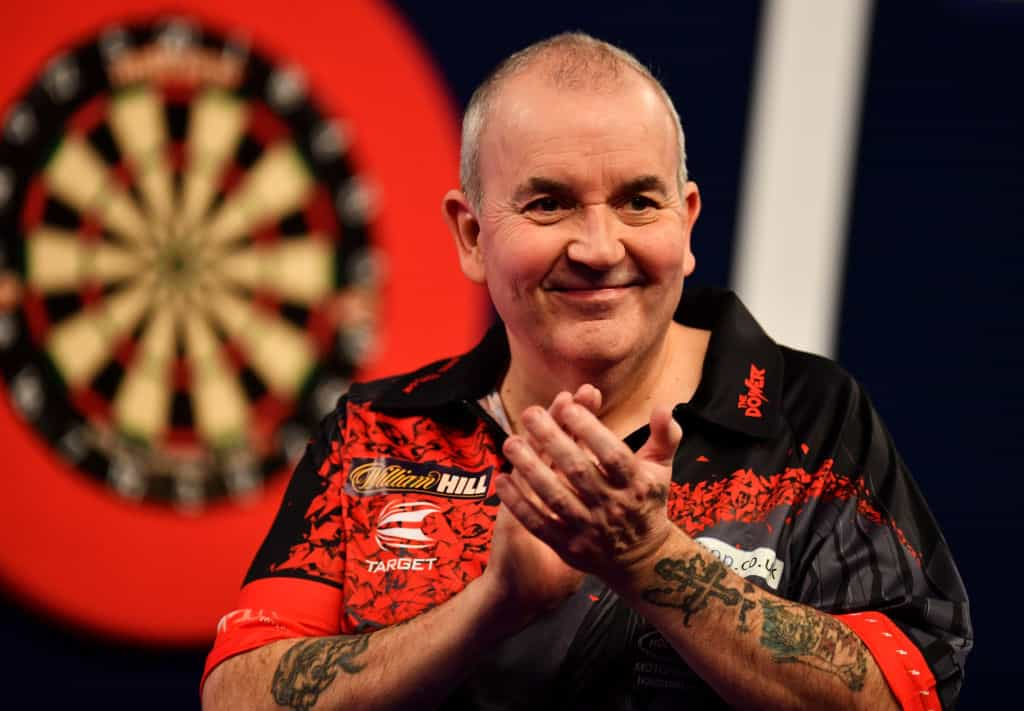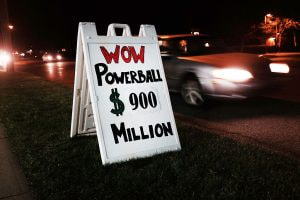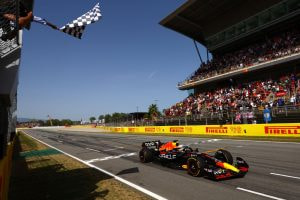All You Need to Know About the PDC’s World Championship
Darts, once a simple British pub pastime, has become a globally recognised sport in just a few decades. Filling arenas, turning over millions in television rights, merchandise sales and sponsorship, darting stars are now household names and multi-millionaires.
The cherry on the sport’s knickerbocker is the PDC World Championship. Staged annually over the Christmas period, Sky Sports’s cameras capture every leg, set and match of this remarkable tournament that features a whopping £2.5 million in prize money.

Michael Smith had 500,000 reasons to be delighted with his 2023 PDC World Championship victory. ©Kieran Cleeves/PDC
From humble beginnings, the PDC World Darts Championship has grown beyond recognition. Viewing figures in many parts of the world are growing exponentially, and on its current trajectory, the World Champion is predicted to collect a £1 million cheque by 2026.
How did this surge in popularity come about? Who are the past and present stars of the PDC World Darts Championship? What is the format of this annual feast, and what does the future have in store? Here, you will find the answers to those questions and much more.
How the PDC World Championship Was Created
Until 2020, Darts had two World Championship versions. The BDO World Championship dated back to 1978. The PDC World Darts Championship began 16 years later following an acrimonious dispute between its top professional darts players and the BDO (British Darts Organisation).
When 16 professional players – including every previous world champion still active in the game – left the BDO, the World Darts Council, later re-named the Professional Darts Corporation (PDC), was formed.
Following 18 months of controversy, on December 26, 1993, the first World Championship featuring this breakaway organisation began. The 1991 BDO World Champion, Dennis Priestly, won the inaugural event, staged at the Circus Tavern in Purfleet, Essex, ahead of 23 rivals a week later.
This scheduling started the tradition of the PDC World Championship beginning in December and concluding a few days into the new year. It has remained unchanged, but the PDC World Darts Championship moved to its current home, London’s Alexandra Palace, in 2008.
PDC World Darts Money Tree
The prize money for the first PDC World Darts Championship was £64,000 – significantly less than that year’s BDO World Championship, which boasted a £136,100 prize fund. In 1995, the purse had dropped to £55,000, with Phil Taylor collecting £12,000 for his first victory.
After some peaks and troughs, the prize fund broke through the £100,000 barrier in 1999, and despite global recessions and a global pandemic, it has continued to grow ever since. 2006 represented the first £500,000 prize pool (and £100,000 winners’ cheque). £1 million was divided between its contestants for the first time in 2010. And there was a massive prize-money hike in 2019 when the prize fund leapt from £1.8 million to its current £2.5 million.
The BDO folded in 2020. Its final World Championship event carried a £127,000 prize pool, and its winner, 57-year-old Wayne Warren from Wales, collected a £23,000 prize. Meanwhile, 32 players earned a minimum of £25,000 for reaching the third round of the PDC’s version of the World Championship that same year.
A Good Bet for the Bookies
Since it was first staged in 1994, gambling companies have been closely connected with darts’ PDC World Championship. Vernon’s Pools – then owned by Ladbrokes – sponsored the event in 1996.
Ladbrokes then became the PDC World Championship’s principal sponsor in 2003. It remained the brand associated with the tournament for 12 years. William Hill took over the reins for eight years, from 2015 until 2022. In 2023, online car shop Cazoo sponsored the event, but Paddy Power brand logo will be on show above the stage at the Alexandra Palace until the 2026 event.
Darts PDC World Championship is an excellent betting medium for online bookmakers and darts betting sites. Matches can offer an array of betting opportunities ranging from simple match bets to handicaps, correct scores, highest checkouts, number of 180s and many more such markets.
Furthermore, the length of PDC World Darts Championship matches makes it the perfect live in-play betting genre. Betting exchanges show very high trading figures for all televised matches at the Sky televised event.
PDC World Darts Champs Format
PDC World Darts Championship matches – all played as single in, double out, 501 games – are contested as a set format. Three legs are required to win a set. The format is ‘best of five sets’ (or first to three) in the first and second rounds. Third and fourth-round matches are ‘best of seven sets’ encounters, the quarter-finals are ‘best of nine sets’.
The semi-finals are ‘best of 11 sets’, and the final is decided by a race to seven sets (a best of 13). For all rounds except the first, the deciding set has to be won by two clear legs unless the set score goes to 5-5. In this scenario, a sudden-death leg is played, with no throw for the bull in any sudden-death legs.
Darts PDC World Champs in Numbers
Since the 2019 PDC World Darts Championship edition, the competition has been open to 96 players. That number consists of the top 32 from the PDC Order of Merit, who are automatically seeded. The following 32 ranked players on the PDC Pro Tour Order of Merit enter an open first-round draw, as do 32 qualifiers from competitions and tours staged worldwide. These include:
The North American CDC Tour, the PDC’s Asian Tour, the PDC China Premier League, the World Youth Championship, the Women’s World Matchplay, two qualifiers from the PDC’s Women’s Series, the Asian Championship, plus many other tours and qualifying events.
The world’s top 32 are parachuted directly into the second round. Players ranked 33 to 64 on the Order of Merit play a qualifier in an opening-round match. Resultantly, the PDC World Darts Championship consists of 95 matches.

Phil Taylor’s record at the PDC World Championship is unlikely to be bettered. ©Getty
Taylor the Best of All PDC World Champions
Phil Tayor’s record stands head-and-shoulders above all others in both darts and the PDC World Darts Championship. Contesting the competition 25 times, ‘The Power’ won the event on 14 occasions and finished runner-up another four years.
Taking the title 11 times between 1995 and 2006, Taylor’s record at the PDC World Championship during this period reads 56 played, 55-won! His only conqueror was John Part, who defied the odds to beat him in the 2003 final. The Canadian would win the competition again in 2008.
Michael van Gerwen won the competition in 2014, 2017 and 2019 and has subsequently finished runner-up twice. It makes him the second most successful player in PDC World Championship history. Joining Part with two victories are Gary Anderson, Adrian Lewis, and Peter Wright.
Dennis Priestly may have only won the tournament once, but finishing runner-up four times between 1996 and 2000, he deserves an honourable mention. Peter Manley never won the final, but he was a three-time finalist. Like Priestly, all of his defeats in the decider came at the hands of Phil Taylor.
Fairytales at the PDC’s Palace
There has never been a genuinely gobsmacking winner of the PDC World Championship. But Kirk Shepherd, an unknown 21-year-old sheet metal worker from Kent, performed miracles to reach the 2008 final.
With the biggest win of his career being the 2007 Hampshire Open, Shepherd was 1,000/1 at the competition’s outset. He was beaten 7-2 by John Part in the final, but to this day, he remains the PDC World Championship’s youngest finalist.
Another memorable year was 2019 when Fallon Sherrock defied 10/1 odds to beat Ted Evetts in the 2020 PDC World Championship opening round. The victory made her the first female player to win a match at the World Championship.
Within 24 hours, 25-year-old Sherrock had been given the ‘Queen of the Palace’ moniker and became a household name courtesy of appearances on breakfast and daytime TV chat shows.
Television ratings surged when she met and conquered 11th-seeded Mensur Suljovic in another remarkable performance four days later. Her winning run ended in the third round. Sherrock would later become the first woman to reach a televised final (in 2021), and in 2023, she made more history by receiving an MBE during a year when she became the first female to register a televised nine-dart finish.
Seeds and Screaming Score Lines
According to rankings, the lowest-seeded winner of the PDC World Darts Championship was 2007 victor Raymond van Barneveld. The Dutchman joined the PDC organisation in February 2006, so he did not have the opportunity to amass as many ranking points as his rivals. Consequently, he was seeded 32, but notably, he had won the UK Open six months before his heroics at the Alexandra Palace.
Two years later, van Barneveld was back in the final, but he was unable to contain Phil Taylor – who registered a record decider three-dart average of 110.94 – and he narrowly avoided a whitewash eventually losing 7-1.
There have been four whitewashes in PDC World Darts Championship finals. Phil Taylor inflicted them all! Only once since 2007 has a decider gone down to the final set, and half of all subsequent finals have finished 7-3 or 7-4.



